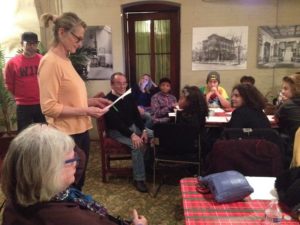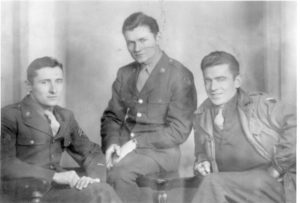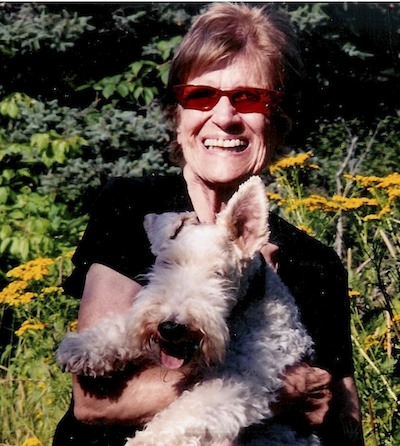Write about something in your closet
December 15, 2017 • 10 Comments • Posted in careers/jobs for people who are blind, memoir writing, teaching memoir, writing promptsWriters in my classes who are downsizing into smaller apartments or senior living centers come to class musing about all the stuff they’ve accumulated over the years. What do they leave behind, I wonder. How do they decide?
I also wonder what writing assignment I might give to prompt them to answer those questions. Wonder no more! Sheila, a writer in my Wednesday class, emailed me a while back with a list of prompts she wanted me to assign. If you’re blind, can something still catch your eye? Maybe not. So, one of Sheila’s prompts catches my ear: “Write about Something in Your Closet.”
I like to use prompts that are vague and open to all sorts of possibilities, and this one would work in three different instances:
- Writers who had moved lately could tell us about an item that passed the audition and made the trip to their new closets.
- Writers still at home could write about something they’ve stowed away, and why they still have it.
- Anyone in class with an urge to divulge family secrets could write about skeletons.
I assigned the prompt to all my December classes, and 97-year-old Wanda responded instantly. “Any of you remember the George Carlin skit called Stuff?” she laughed. “We all need a place for our stuff!”
I told writers who were uninspired by the prompt to go home, open a closet door and take a look. Pat did exactly that, opening her essay the next week describing herself standing in front of the closet in her entry hall and hesitating. “My closet is such a nag! If I open the four imposing bi-fold doors a big red neon light is going to start flashing, ‘To Do…To Do.’”
Carol hoped to avoid the nags from the closet in her condominium by hiring a residential professional organizing service to help her downsize. She moved to a smaller apartment six weeks ago, and the organizer was there to help her unpack as well. “Once again, with my daughter assisting, she was a whirlwind.” Dozens of boxes disappeared in nothing flat, she said. Dishes and pots and pans were all stacked in the right cupboards. The organizer also managed to cram everything from the large wardrobe containers into the only clothes closet in Carol’s new apartment. “Summer clothes are mixed with winter ones, longer items on one side, shorter things on the other…everything that I kept has to be somewhere in there, but where?” she asks. “What’s in my closet? I wish I knew!”
Mary moved recently, too, and wrote of how the closet in her new place haunts her at night now. ” I can almost hear my closet crying – it is so empty!” she wrote, explaining what had gone on once they’d decided to move. “I saw beloved old 78 records from my college years fly off into oblivion, years of Nativity scenes collected from all over the world escape back into other houses, stacks of papers disappear into shredding machines, and sets of dishes and silver and table linens vanish out the door.” Mary described the contents of her new lonely closet as “the belongings I have saved from the moving van, the charitable resale stores, the electronics recycling center, the backyard trash bin, the book dealers, my new best friend Phil at UPS, the far flung homes of our children, and the on-line auction clutches of Everything But the House.”
Bob and his wife Linda are still in the condo they’ve lived in for years, and he opened his essay with a decree. “There should be a marriage law that all closets should be divided equally between husband and wife,” he wrote. “Why is it that my wife’s closet is more than two-and-a-half times bigger than mine? Linda has clothes for all seasons, and if you ask her, she’ll tell you there are at least seven or eight seasons in Chicago.” Linda’s closet floors are covered with shoes, but he can count the things on his tiny closet floor in one hand: tool kit, box of hair styling equipment, shoe shine stand and a small stool where he sits to put on his shoes and socks.
That is, until Linda got a new office chair and made plans to take her old overstuffed heavy desk chair to their summer place in Indiana. “But in the meantime, where do you think her old chair is sitting?” he chuckled as he read out loud in class. “Well, it’s sitting right in front of the little stool I used to sit on to put on my shoes and socks.”
As for Sheila, the writer who’d suggested the prompt? She wrote about a uniform from her working days. “I’ve kept my Air Canada ticket agent uniform in the back of my closet FOR 34 YEARS,” she wrote. “I’m proud of my airline career. It was my identity.” Perhaps she can carve out a new identity now as the student who provides writing prompts for her memoir teacher. This was a good one!



